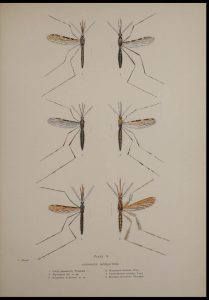This post, by our colleague Dr. Hannah Woodward-Reed, forms part of a series on the Jisc-Wiley history of science digital archive. It is notable that this resource is free to Jisc members in the UK.
February 28th marks Rare Disease Day, raising awareness and working towards equity of healthcare and access to diagnosis, healthcare and therapy for the 300 million people living worldwide with a rare disease. [1]
One of the UK centers for health research is the Wellcome Trust, and within the British Association for the Advancement of Science (BAAS) archive is the first report of the Wellcome Research Laboratories at the Gordon Memorial College in Khartoum, published in 1904.[2]
Within the report they note local affectations in The Sudan such as mycetoma, which is noted as being common for such a rare disease; a bacterial or fungal infection which enters the body most commonly through small cuts to the feet. Over 100 years later mycetoma is still classified as a neglected disease, and affects skin, muscle and bone causing amputation and severe disability.[3]
A large section of the report is devoted to the study of the mosquitos of Egypt, the Sudan and Abyssinia, logging specimens and malaria carriers. [5]
Use this Rare Disease Day to hunt through our archives and share interesting discoveries, helping to raise awareness for this vulnerable population who require immediate and specialised attention.
Footnotes
[1] What is Rare Disease Day? – Rare Disease Day 2022
[2] First Report of the Wellcome Research Laboratories at the Gordon Memorial College Khartoum. Andrew Balfour, Fred. V. Theobald, Natural Resources Institute Archive, 1904. Source: University of Greenwich: Natural Resources Institute, image 64, https://app.wileydigitalarchives.com/wiley/detail/GWICFA017-C0001-MA000432
[3] Drugs for Neglected Diseases Initiative, Symptoms, transmission, and current treatments for mycetoma | DNDi
[4] First Report of the Wellcome Research Laboratories at the Gordon Memorial College Khartoum. Andrew Balfour, Fred. V. Theobald, Natural Resources Institute Archive, 1904. Source: University of Greenwich: Natural Resources Institute, images 72-97, https://app.wileydigitalarchives.com/wiley/detail/GWICFA017-C0001-MA000432
[5] First Report of the Wellcome Research Laboratories at the Gordon Memorial College Khartoum. Andrew Balfour, Fred. V. Theobald, Natural Resources Institute Archive, 1904. Source: University of Greenwich: Natural Resources Institute, image 81, https://app.wileydigitalarchives.com/wiley/detail/GWICFA017-C0001-MA000432

